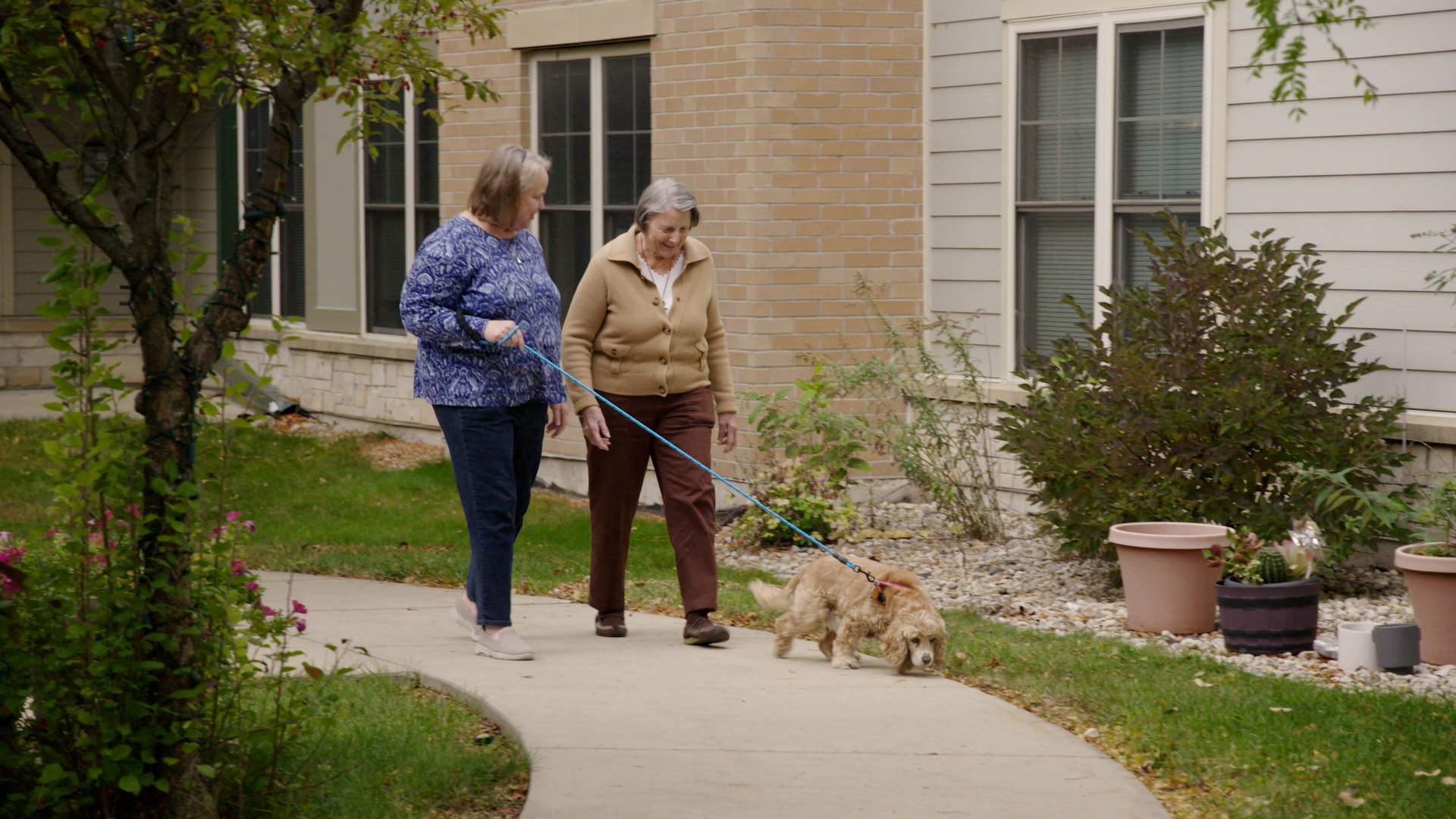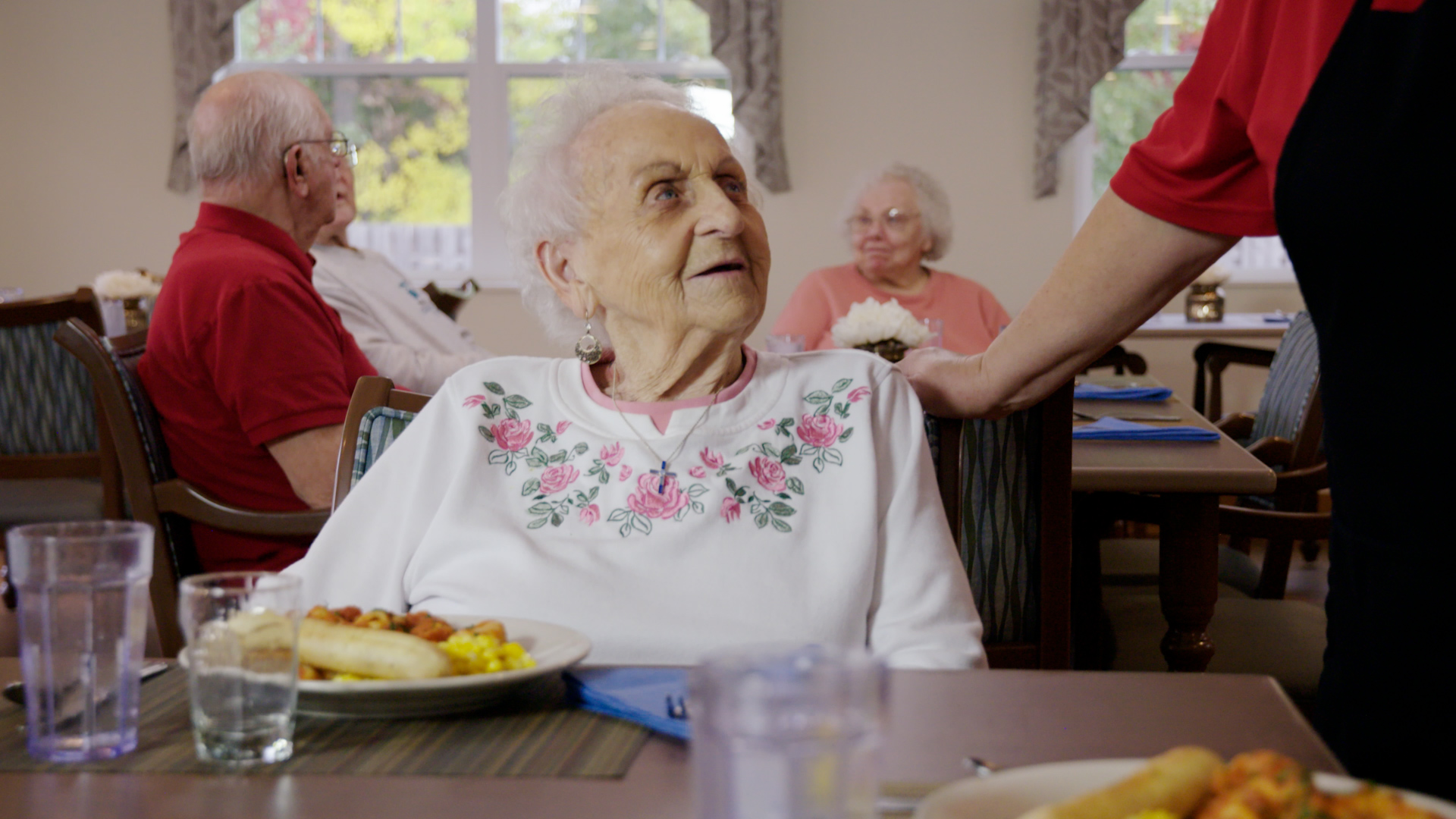News
Guide to Dementia and Alzheimer's Care at Oak Park Place

Caring for a loved one with dementia or Alzheimer's requires specialized support and understanding. At Oak Park Place in Madison, WI, we offer comprehensive care services tailored to meet the unique needs of residents with memory impairments.
This guide provides an overview of our dementia and Alzheimer's care programs and offers valuable tips for families to support their loved ones.
Overview of Dementia and Alzheimer's Care Programs
Oak ParkPlace provides a safe, nurturing, and stimulating environment for residents with dementia and Alzheimer's. Our specialized care programs focus on enhancing quality of life through personalized care plans, therapeutic activities, and a compassionate approach.
Personalized Care Plans
- Individual Assessments: Each resident receives a thorough assessment to understand their specific needs, preferences, and medical history. This assessment helps us create a personalized care plan that addresses their unique challenges and promotes their strengths.
- Customized Daily Routines: We design daily routines tailored to each residents' abilities and preferences, ensuring a sense of familiarity and comfort. These routines include activities that promote cognitive function, physical health, and emotional well-being.
- Ongoing Monitoring and Adjustments: Our Care team continually monitors residents' health and behavior, making necessary adjustments to their care plans to ensure optimal support and well-being.
Therapeutic Activities and Programs
- Cognitive Stimulation: Engaging activities such as puzzles, memory games, and music therapy are designed to stimulate cognitive function and slow the progression of memory loss.
- Physical Activities: Gentle exercises, like chair yoga and walking clubs, help maintain physical health and mobility, which are crucial for overall well-being.
- Social Interaction: Group activities and social events encourage interaction and help combat feelings of isolation and depression. These activities are tailored to be enjoyable and manageable for residents with varying levels of memory impairment.
- Sensory Therapy: Activities involving tactile, auditory, and visual stimulation help soothe and engage residents, providing comfort and reducing agitation.
Tips for Families Supporting Loved Ones with Dementia or Alzheimer's
Families play a crucial role in the care and support of loved ones with dementia or Alzheimer's. Here are some practical tips to help you navigate this journey and provide the best support possible.
Communicating Effectively
- Stay Patient and Calm: Approach conversations with patience and a calm demeanor. Avoid arguing or trying to correct your loved one, as this can lead to frustration and confusion.
- Use Simple Language: Speak clearly and use simple, short sentences. Avoid complex instructions or questions that might overwhelm your loved one.
- Non-Verbal Cues: Pay attention to body language and facial expressions, both yours and your loved one's. Non-verbal communication can often convey more than words.
- Active Listening: Show that you are listening and understanding by nodding, maintaining eye contact, and repeatings or rephrasing what they have said.
Creating a Safe and Supportive Environment
- Familiar Surroundings: Keep the living space familiar and clutter-free. Familiar objects and photos can provide comfort and a sense of security.
- Routine and Consistency: Establish a daily routine that includes consistent times for meals, activities, and rest. Predictable routines help reduce anxiety and confusion.
- Safety Measures: Implement safety measures such as securing hazardous items, installing grab bars, and ensuring adequate lighting to prevent falls and accidents.
- Memory Aids: Use memory aids like labeled drawers, calendars, and clocks to help your loved one navigate their day and remember important information.
Taking Care of Yourself
- Seek Support: Join support groups for caregivers to share experiences and gain advice from others in similar situations.
- Respite Care: Take advantage of the respite care services offered by Oak Park Place to give yourself a break and prevent caregiver burnout.
- Self-Care: Prioritize your own health and well-being. Make time for activities you enjoy and seek professional help if you're feeling overwhelmed.
Frequently Asked Questions
Q: What types of memory care programs does Oak Park Place offer?
A: Oak Park Place offers personalized care plans, therapeutic activities, cognitive stimulation, physical activities, social interaction, and sensory therapy designed specifically for residents with dementia and Alzheimer's.
Q: How are the care plans personalized for each resident?
A: Each resident undergoes an individual assessment to understand their specific needs and preferences. Based on this assessment, we create a customized daily routine and continuously monitor and adjust the care plan as needed.
Q: Can family members be involved in the care process?
A: Yes, family involvement is encouraged. We provide tips and resources to help families support their loved ones and welcome family participation in activities and care planning.
Q: What measures are in place to ensure the safety of residents?
A: We implement various safety measures, including secure environments, grab bars, proper lighting, and supervised activities to ensure the safety and well-being of our residents.
Conclusion
At Oak Park Place in Madison, WI, our dedicated dementia and Alzheimer's care programs are designed to provide comprehensive support, ensuring the highest quality of life for our residents. By offering personalized care plans, therapeutic activities, and a safe environment, we help residents maintain their dignity and independence.
For more information about our services or to schedule a tour, please contact us.



